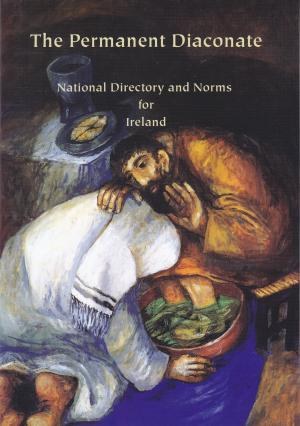Extent: Paperback
Publisher: Veritas Publications
Click and Collect - Free
Click & Collect is available across Ireland and Northern Ireland in our Veritas stores. We will contact you when your item(s) are ready for collection. Please visit your branch after you receive contact from us that your items are available to collect. The order will be ready for you within 2-5 working days, subject to opening hours, order volumes, if the item is in stock and time order is placed.
Standard Express Delivery
Complimentary shipping within Ireland & Northern of Ireland is available on orders over €100, delivery fees will be added according to the area of delivery, as described below:
| Country Zone | Under €100 | Over €100 | TimeFrame |
|---|---|---|---|
| Ireland | €6.50 | Free! | 3-7 working days |
| Northern Ireland | €6.50 | Free! | 3-7 working days |
| Country Zone | Under €50 | Over €50 | TimeFrame | UK | €12.00 | €15.00 | 3-7 working days |
|---|---|---|---|
| Europe | €17.00 | €25.00 | 3-7 working days |
| USA & Canada | €35.00 | €50.00 | 7-14 working days |
| Rest of the World | €55.00 | €55.00 | 7-21 working days |
| **Trade Customers** | |||
|---|---|---|---|
| Country Zone | Under €500 | Above €500 | TimeFrame |
| Ireland | €6.50 | Free! | 3-7 working days |
| Northern Ireland | €6.50 | Free! | 3-7 working days |
| UK | €12.00 | Free! | 3-7 working days |
Please Note:
• Click and collect orders are "free" as there is no shipping involved.
• If the order after discount is applied is below €100 or €500 (trade orders), shipping will be charged.
• EUA, Canada and Rest of the World shipping charges are for parcels with maximum weight of 2kg.
• These time frames are a guide and shipping times may vary, especially at busy periods.
• Please allow a few days leeway for personalised products or pre-orders.
• We are aware of some shipping delays throughout Europe and the USA caused by unforcing circusntances or territorial border control restrictions. This is out of our control. Please allow a few days leeway for your delivery.
• Subject to placing your order before 12:30pm. Does not apply to pre-ordered items.
• Check on our Delivery Policy page, the delivery areas. We do not deliver to Channel Islands or the Isle of Man.
Description
Francis of Assisi, founder of the Franciscan Orders, is probably one of the best known deacons, though many tend to assume that he was a priest. Gradually, in the Western Church, the functions of deacons were absorbed into the ministry of the priest, and the diaconate became a transitional order, for those on the way to priesthood. The diaconate continued to exist as a permanent ministry in the Eastern Churches, including those in full communion with Rome.
› Renewal
The Second Vatican Council envisaged a renewal of ministry, both lay and ordained, in the Church. The Council’s Constitution on the Church, Lumen Gentium, explains that the lay faithful, by virtue of their Baptism, are commissioned to an active apostolate and insists that “every opportunity be given them so that, according to their abilities and the needs of the times, they may zealously participate in the saving work of the Church.” The Second Vatican Council also proposed the restoration of the diaconate as a “distinct ministry of service” to be exercised “in communion with the bishop and his group of priests”.
Many of the functions that deacons perform can also be carried out by members of the lay faithful. The restoration of the diaconate is not intended in any sense to change that situation. The idea is that some of those who already exercise these functions would be “strengthened with the grace of diaconal ordination” and in that way would be designated to be a visible public sign of the Christ the Servant in the community of the Church.

